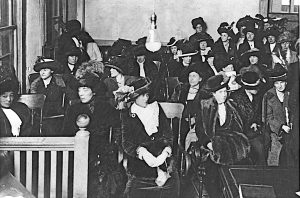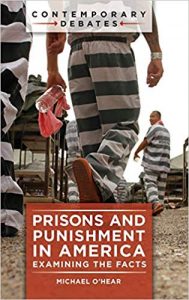New Marquette Lawyer Magazine Discusses the Search for Better Outcomes in the World of Law Enforcement (Post 3 of 3)
 This third and final post reflecting the “In Search of Better Outcomes” theme of the new Marquette Lawyer magazine begins with a third pair of articles, the one that actually provides the quoted phrase (see here and here for the previous posts and previous pairs). These last two articles, with a brief introduction, look at the impact of law enforcement on people on different sides of the badge—and at possibilities for better outcomes both for those in law enforcement who are affected negatively by the cumulative trauma with which they deal and for offenders upon release, after they have served time in incarceration.
This third and final post reflecting the “In Search of Better Outcomes” theme of the new Marquette Lawyer magazine begins with a third pair of articles, the one that actually provides the quoted phrase (see here and here for the previous posts and previous pairs). These last two articles, with a brief introduction, look at the impact of law enforcement on people on different sides of the badge—and at possibilities for better outcomes both for those in law enforcement who are affected negatively by the cumulative trauma with which they deal and for offenders upon release, after they have served time in incarceration.
“Behind the Badge: A Growing Sense of the Need in Law Enforcement to C ope with Trauma” is an edited transcript of a panel discussion involving four people who have served in law enforcement. They offer insights on the need for better avenues for getting help for those who see so much violence and extreme behavior as part of their jobs protecting the public. The discussion was part of Law School’s Restorative Justice Initiative conference on November 9, 2018, titled “The Power of Restorative Justice in Healing Trauma in Our Community.”
“Putting a Period at the End of the Sentence,” an article by Alan Borsuk, draws on a conference, on October 4, 2018, of the Law School’s Lubar Center for Public Policy Research and Civic Education. Titled “Racial Inequality, Poverty, and the Criminal Justice System,” the gathering focused on issues facing people who are returning to the general community after incarceration. The story features some of the keynote remarks by Bruce Western, a sociology professor at Columbia University and author of Homeward: Life in the Year After Prison (2018). It also reports on observations by leaders of programs in the Milwaukee area that aim to help people leaving incarceration establish stable lives in the community.


